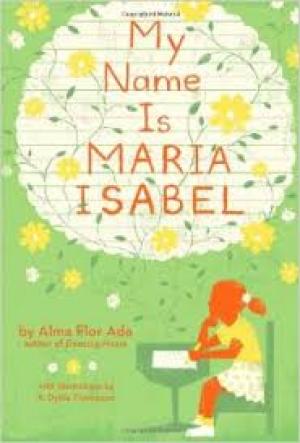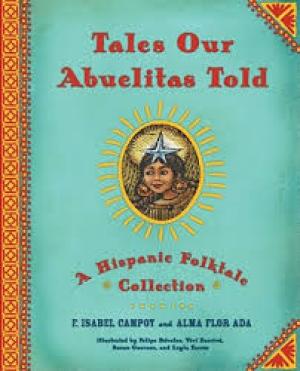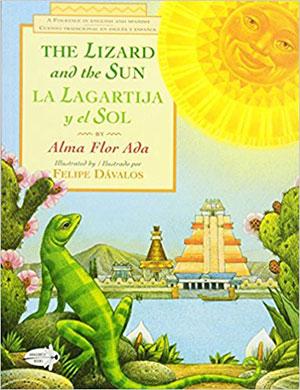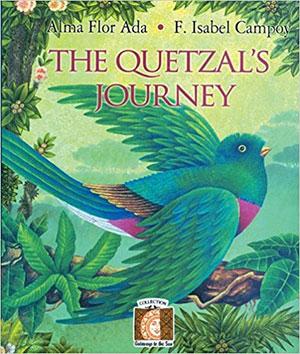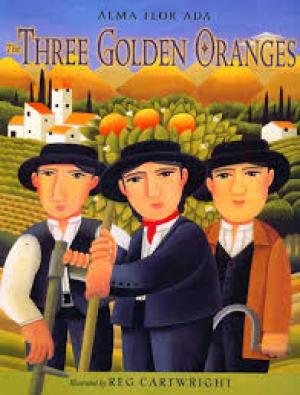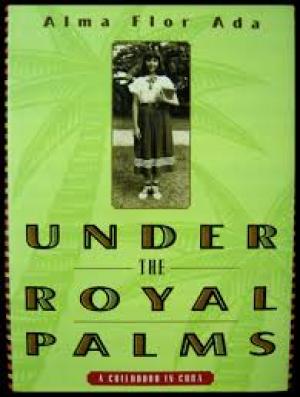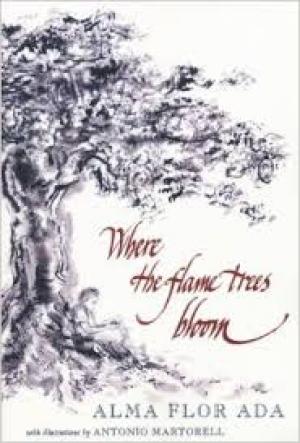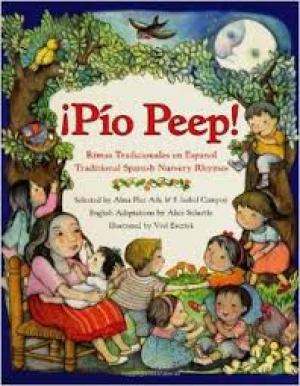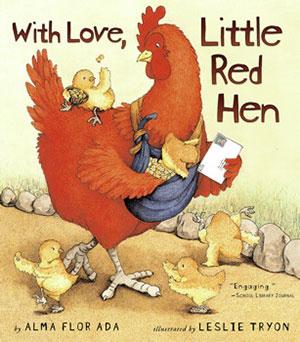Alma Flor Ada grew up with her extended family in a big house on the outskirts of Camagüey, Cuba. As a young girl, she loved to read, play outside on the farm, and listen to her mother sing old ballads at bedtime. Alma Flor's grandmother used to recite poetry and tell her traditional folktales. After studying English and attending bilingual schools, Alma Flor Ada earned a scholarship to a college in the United States at the age of 17.
For many years, Ada followed her academic interests around the globe. In Spain she earned a degree in Hispanic Studies. In Peru she received a Ph.D. in Spanish Literature. After conducting post-doctoral research at Harvard University, Ada became a professor at the University of San Francisco, where she directed the Center for Multicultural Literature for Children and Young Adults. Over the years, Ada has been an influential leader in the field of bilingual education in the United States.
Alma Flor Ada's career as an author first began when she started developing text books for her high school students in Peru. Her first children's book, which she originally wrote for her daughter, became required reading for tens of thousands of Peruvian school children. Since moving to the United States, Ada has developed educational materials, retold folktales, and written original picture books and middle grade novels. Among her many awards are the Christopher Award for The Golden Coin and the Pura Belpré Award for Under the Royal Palms.
Alma Flor Ada lives Mill Valley, California and is a Professor Emeritus at the University of San Francisco.
Books by This Author
Mamá Goose: Bilingual Lullabies
Snuggle up for bedtime with these delightfully illustrated lullabies that are rich with the diversity of Latine cultures. The rhymes in Mamá Goose were collected by award-winning authors and scholars of Latine literature and are the perfect introduction to Spanish-language lullabies for English speakers, and a trove of familiar favorites for native Spanish speakers.
My Name Is Maria Isabel
Product Description: For María Isabel Salazar López, the hardest thing about being the new girl in school is that the teacher doesn't call her by her real name. "We already have two Marías in this class," says her teacher. "Why don't we call you Mary instead?" But María Isabel has been named for her Papá's mother and for Chabela, her beloved Puerto Rican grandmother. Can she find a way to make her teacher see that if she loses her name, she's lost the most important part of herself?
Tales Our Abuelitas Told: A Hispanic Folktale Collection
"Stories have delighted both children and adults for as long as there have been families and communities on Earth." So begins the informative introduction to the dozen takes which are presented here to charm another generation, ideal for reading independently or sharing aloud. A mixture of popular tales and literary lore, this anthology celebrates Hispanic culture and its many roots — Indigenous, African, Arab, Hebrew, and Spanish.
The Lizard and the Sun / La Lagartija y el Sol
A long, long time ago in ancient Mexico, the sun disappeared. Everything was dark, and the people were afraid. The animals decided to search for the sun through the fields and forests, rivers and lakes. But the sun was nowhere to be found. At last the animals stopped looking, all except the lizard. This is the story of a brave little lizard who would not give up until she had brought back light and warmth to everyone.
The Quetzal's Journey
From the Amazon rain forest to the Atacama desert, Latin America is without rival in its natural beauty, geographical jewels, and incredible variety of flora and fauna. The poetic flow of the text and the colorful illustrations take readers on a voyage into the wonders found south of the border.
The Three Golden Oranges
Far on the other side of the mountains, next to an enchanted castle, grows a tree with three golden oranges. It is there that three brothers must journey if they wish to find a wife. Will the brothers be able to avert misfortune by working together? Will they be strong enough to break the spell that a wicked sorcerer has placed on the castle? Alma Flor Ada offers this poetic retelling of a well-loved traditional story about Blancaflor, a mythical young woman who appears in stories throughout the Hispanic world.
Under the Royal Palms: A Childhood in Cuba
In writing about her childhood growing up in Camaguey, Cuba, Alma Flor Ada evokes all the senses. Readers will smell jasmine, coffee, and grandmother's perfume. They will see the bats flying overhead and hear adults share stories. Companion volume to Where the Flame Trees Bloom.
Where the Flame Trees Bloom
"Telling of her childhood in Cuba, Ada begins with an introduction to her homeland followed by 11 episodes about her family and her community. One story tells of her grandfather Modesto's courage and loyalty in the face of the death of his beloved wife and the simultaneous collapse of the Cuban economy. Another tells of her great-grandmother Mina, who continued to make rag dolls for the village children even after she had lost her sight.
Yes! We Are Latinos
Thirteen young Latinos and Latinas living in America are introduced in this book celebrating the rich diversity of the Latino and Latina experience in the United States through free-verse fictional narratives. Each profile is followed by nonfiction prose that further clarifies the character’s background and history, touching upon important events in the history of the Latino American people, such as the Spanish Civil War, immigration to the US, and the internment of Latinos with Japanese ancestry during World War II.
¡Pío Peep! Traditional Spanish Nursery Rhymes
Rhymes from Spanish speaking countries are presented in Spanish and recreated in English to form a bilingual collection, with attention to the sounds and patterns of both languages. Vivid illustrations complete this appealing book.
Pages
Books by This Editor
With Love, Little Red Hen
Hidden Forest has a new resident. Little Red Hen and her seven little chicks have moved into a cottage and plan to grow a bountiful crop of corn in the nearby field. The problem is that none of the Red Hen's neighbors are willing to help with the hard work. "Not I," says the dog, the goose, and the lazy cat. So Goldilocks, who has heard about the new arrivals from her friend Little Red Riding Hood, comes up with a neighborly idea. The story is revealed through the charming letters they write to one another.


